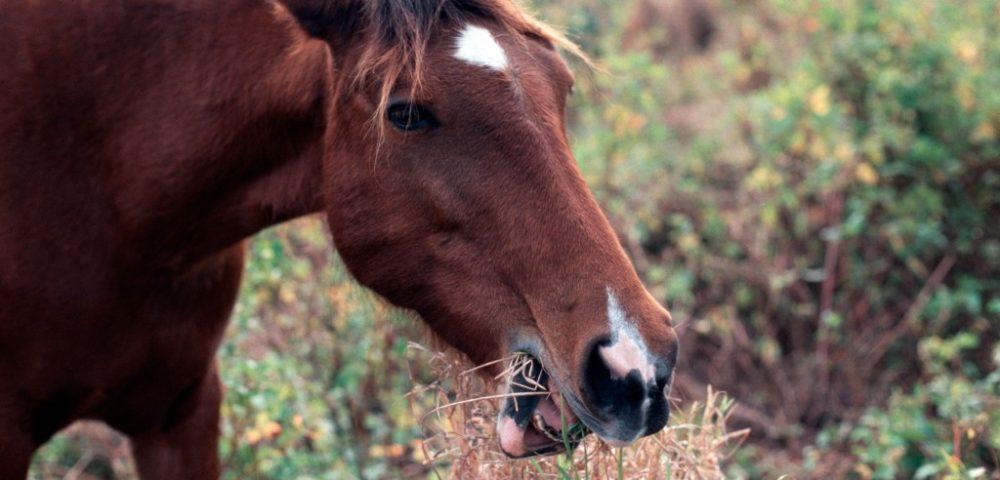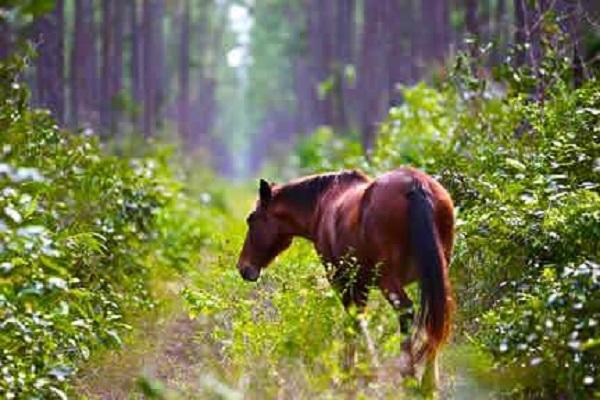
WARHorses: Last Abaco Horse Offers Life to Others
The Abaco Island Horse may be gone… but some of the breed’s genetic material lives on. Our content partner WARHorses brings us the story.
Most of us have lost a horse. The circumstances vary but the result is the same: our precious horse is gone. At first the memories are difficult but with time they evolve into treasures that bring both smiles and tears of joy. It’s never easy to lose a horse — perhaps made worse only when we lose the LAST horse.
In 2015 a mare named Nunki, the last Abaco Island Horse, died in a Bahamian forest.
The horses were brought to Great Abaco Island in the 1800s to remove logs from the pine forest. They were later abandoned when tractors were introduced. Since then, they have lived in paradise with ample forage, water and a dense pine forest for cover. The horses survived for decades in relative isolation.
Their isolation intrigued one particular woman, Milanne Rehor, President and Field Director of Arkwild, Inc., a not for profit U.S. corporation that works to save small endangered populations of animals. Rehor moved to the Bahamas in 1992 and embarked on a mission to identify these horses and secure their survival.
The Abaco Island Horse was recognized as a distinct breed in 2002 after a decade of data collection and research that cataloged the horses’ distinct phenotype. UCLA, the University of Kentucky, IMD in Germany and the Horse of Americas Registry all reached the same conclusion: Spanish. The island horses were irrefutably Columbian-era Spanish descendants. To boot, they carry a unique coloration, splash white, and are the purest strain of direct descendants in the world. Genetic jackpot!
The band of about 200 horses thrived on the island until the 1960s. A road opened the pine forest to boar hunters who shot whatever their dogs chased out of the woods, pigs or horses. The herd was virtually eradicated after a young child was killed attempting to ride one. The child kicked the horse who bolted dragging the child to her death. In retribution islanders killed all but three horses.
By the early 90s the herd had rebound to a tepid 35 individuals, but then Hurricane Floyd took its toll. In 1999, the storm’s fury decimated the island’s vegetation. The horses migrated to a citrus farm ingesting a diet of pesticides that accumulated in their bodies. After 1999 no live foals were born.
The Abaco Island herd declined steadily, marked extinct upon Nunki’s death.
We will never again know the pleasure of watching these horses mill about Abaco Island, moving through the shaded pines or grazing beachside in the sunshine. They are gone. Well, almost…
When Nunki died, Rehor, had the foresight to collect tissue that was sent to a cloning laboratory. Recently the Bahamian government granted Rehor permission to use Nunki’s DNA to produce a clone.
It will be impossible for the Abaco Island Horse to return as there is only one genetic source for cloning. However, the breed’s old world genetic structure has tremendous value for other feral horses with limited genetic bases. Nunki’s DNA may be introduced into faltering breeds offering them a genetically stronger chance for survival. Nunki may become the genesis for breeds that might otherwise follow her path to extinction.
And that’s a pretty cool epitaph.
Melanie Eberhardt is the founder of WARHorses – Women of Age Riding Horses. As lifetime horse lover, Melanie found little content online that spoke to the considerations of “older riders”. She launched WARHorses to fill this void with pertinent, original content with the added objective of developing a global community supported by meaningful information, inspiration and a lot of laughs.









Leave a Comment